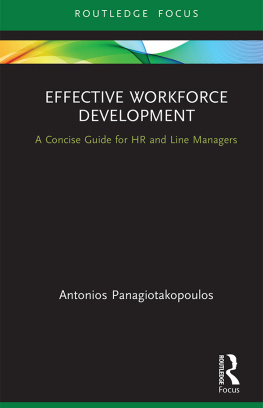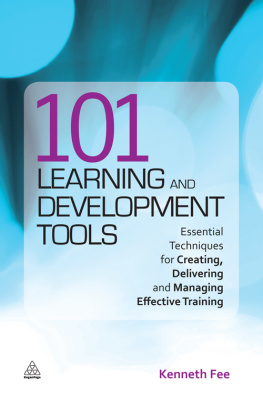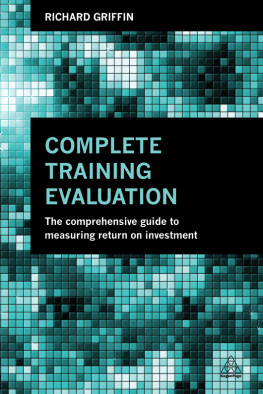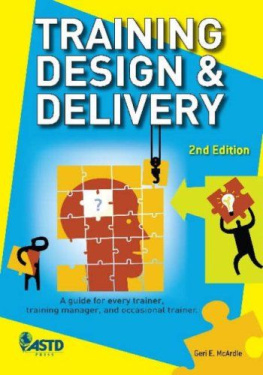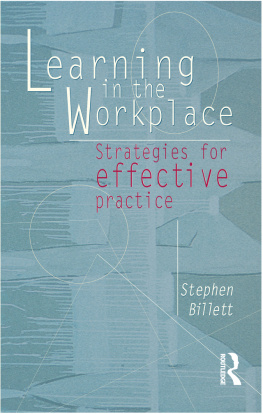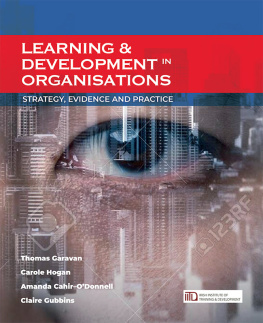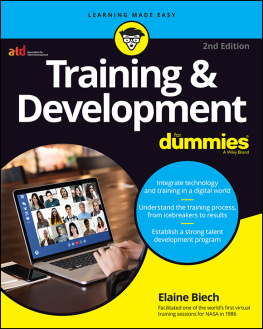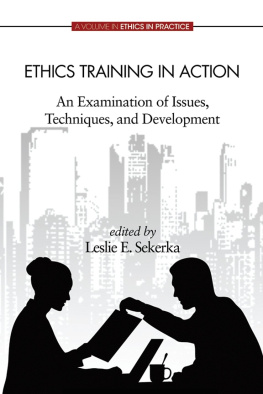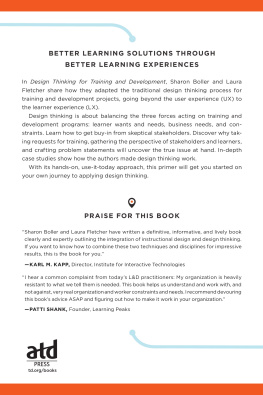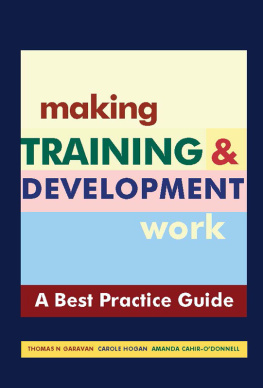Table of Contents
Guide
Print Page Numbers
Effective Workforce Development
Developed for busy HR practitioners and trainers, this book provides a concise guide to the theory and practice of employee training in contemporary organisations. Reflecting the importance of employee development to learning-based organisations in the knowledge economy, it clearly links employee training needs to business development and offers an accessible guide to current theories combined with research-based practical guidance in how to design effective training programmes.
Covering all the current theories about training and development and the latest thinking about workplace learning interventions, this concise, practical guide will be an essential source for HR practitioners and line managers seeking to improve organisational learning and performance.
Dr Antonios Panagiotakopoulos holds a PhD in Human Resource Management from the University of Leeds, where he serves as a Research Fellow and Dissertation Tutor at the Centre for Employment Relations, Innovation and Change (CERIC). He has previously worked as a Lecturer in HRM teaching courses at Leeds University and Chester University, as well as a Senior Lecturer of HRM in several Higher Education Institutions in Greece (e.g. New York College, Athens and American College of Greece). During his career he has won several teaching and research awards, while his articles have been published in various international peer-reviewed academic journals including International Journal of Training and Development, Journal of Business Strategy, and The Learning Organization.
Routledge Focus on Business and Management
The fields of business and management have grown exponentially as areas of research and education. This growth presents challenges for readers trying to keep up with the latest important insights. Routledge Focus on Business and Management presents small books on big topics and how they intersect with the world of business research.
Individually, each title in the series provides coverage of a key academic topic, whilst collectively, the series forms a comprehensive collection across the business disciplines.
Liminality in Organization Studies
Theory and Method
Maria Rita Tagliaventi
Branding and Positioning in Base of Pyramid Markets in Africa
Innovative Approaches
Charles Blankson, Stanley Coffie and Joseph Darmoe
Ephemeral Retailing
Pop-up Stores in a Postmodern Consumption Era
Ghalia Boustani
Effective Workforce Development
A Concise Guide for HR and Line Managers
Antonios Panagiotakopoulos
Employment Relations and Ethnic Minority Enterprise
An Ethnography of Chinese Restaurants in the UK
Xisi Li
For more information about this series, please visit: www.routledge.com/Routledge-Focus-on-Business-and-Management/book-series/FBM
Effective Workforce Development
A Concise Guide for HR and Line Managers
Antonios Panagiotakopoulos

First published 2020
by Routledge
2 Park Square, Milton Park, Abingdon, Oxon OX14 4RN
and by Routledge
52 Vanderbilt Avenue, New York, NY 10017
Routledge is an imprint of the Taylor & Francis Group, an informa business
2020 Antonios Panagiotakopoulos
The right of Antonios Panagiotakopoulos to be identified as author of this work has been asserted by him in accordance with sections 77 and 78 of the Copyright, Designs and Patents Act 1988.
All rights reserved. No part of this book may be reprinted or reproduced or utilised in any form or by any electronic, mechanical, or other means, now known or hereafter invented, including photocopying and recording, or in any information storage or retrieval system, without permission in writing from the publishers.
Trademark notice: Product or corporate names may be trademarks or registered trademarks, and are used only for identification and explanation without intent to infringe.
British Library Cataloguing-in-Publication Data
A catalogue record for this book is available from the British Library
Library of Congress Cataloging-in-Publication Data
A catalog record has been requested for this book
ISBN: 978-0-367-33250-1 (hbk)
ISBN: 978-0-429-31887-0 (ebk)
Typeset in Times New Roman
by Wearset Ltd, Boldon, Tyne and Wear
Contents
This book is dedicated to Maria. Her endless love, encouragement and support have been of the utmost importance for me. I extend my sincere thanks to my parents, my sister and her family, Marias grandparents and a few close friends for their continuous encouragement. My mentors at the University of Leeds, Professor Mark Stuart and Professor Christopher Forde, also deserve my special thanks for their valuable guidance during my entire academic career. Last but not least, I would like to thank Jacqueline Curthoys at Routledge for supporting this effort with so much enthusiasm.
As the title suggests, this book provides in an easy-to-digest format a very comprehensive analysis to employee training and learning at work for busy HR professionals and other line managers concerned with developing employee skills. Essentially, it aims to provide the busy manager with an understanding not only of the potential of systematic training and informal on-the-job learning to contribute to improved organisational performance and individual well-being at work but also why it very often fails to yield such positive outcomes. The ultimate aim of this book is to raise the awareness of HR and line managers on how to create the necessary conditions at work in order to unleash human talent that will drive organisational success.
Dr Antonios Panagiotakopoulos holds a PhD in Human Resource Management from the University of Leeds, where he serves as a Research Fellow and Dissertation Tutor at the Centre for Employment Relations, Innovation and Change (CERIC). He has previously worked as a Lecturer in HRM teaching courses at Leeds University and Chester University, as well as a Senior Lecturer of HRM in several Higher Education Institutions in Greece (e.g. New York College, Athens and American College of Greece). During his career he has won several teaching and research awards, while his articles have been published in various international peer-reviewed academic journals including International Journal of Training and Development, Journal of Business Strategy and The Learning Organization.
The emergence of the knowledge-based society
The business environment is becoming more complex and more competitive. Organisations of all types are faced with a number of challenges presented by a fast-paced, highly dynamic and global economy. To survive and thrive in this environment, todays organisations must be even more competitive and adaptive and, what is more, must foster quality, cost reduction and innovation. To accomplish these goals, organisations have to ensure both the willingness and ability of their staff to meet all these targets.
The rate of technological change is now greater than it has ever been and for that reason organisations not only need to train their employees but also to help them learn faster than their competitors. Human resource training activities can be used to ensure that the members of organisations have what it takes to successfully meet their challenges. In the new knowledge-based economy, the most important intellectual property is what is inside employees heads. As several academics and business leaders have noted, managers will always have to find ways of developing and mobilising the intelligence, knowledge and creative potential of human beings at every level of the organisation and become increasingly skilled in placing quality people in key places and developing their full potential. It will become increasingly important to recruit people who enjoy learning and relish change, as well as to motivate employees to be intelligent, flexible and adaptive.

